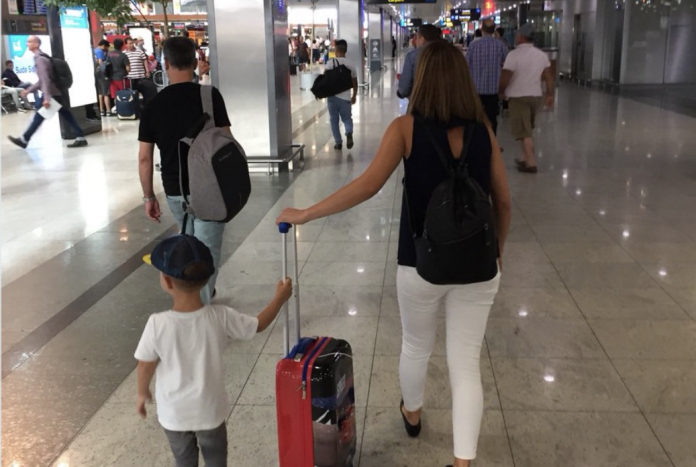Meşale Tolu, a Turkish-German journalist and translator who was on remand in Turkey on terror-related charges, has flown to Germany with her three-year-old son.
Although a Turkish court lifted her travel ban, she still faces trial in October, according to a report by Deutsche Welle (DW).
Tolu flew into Stuttgart airport on Sunday, just days after it was made public that a Turkish court had approved a request for her to leave the country. Tolu arrived back in Germany with her nearly four-year-old son, having tweeted from an İstanbul airport earlier that “After 17 months, [I’m] heading home.”

“That’s why I’m not really happy about leaving, because I know that nothing has changed in the country where I was imprisoned,” Tolu said. She added that she would continue fighting for people who have been jailed in Turkey on political grounds.
When asked if she knew why her request to leave Turkey had been approved at this particular point in time, Tolu said she wasn’t aware of any diplomatic deals to lift her travel ban.
She also urged German Chancellor Angela Merkel and Foreign Minister Heiko Maas to bring up the human rights violations taking place in Turkey during Turkish President Recep Tayyip Erdoğan’s planned visit to Germany in September.

Tolu has been charged with engaging in terrorist propaganda and membership in a banned left-wing group, the Marxist-Leninist Communist Party. She denies the accusations, which could lead to a 15-year jail sentence if proven.
Her husband, Suat Çorlu, who along with 16 other defendants is facing similar charges, has been ordered to remain in Turkey. The next hearing in Tolu’s trial is on October 16, according to her father, Ali Rıza Tolu. He said his daughter would definitely travel to Turkey again, provided she is allowed to enter.
Tolu’s case has been one of several that have soured German-Turkish relations over the past three years. In February, an Istanbul court ordered the conditional release of German journalist Deniz Yücel after receiving an indictment from prosecutors seeking a prison sentence of up to 18 years.
German Foreign Minister Maas said last week that at least seven other Germans are being detained “for reasons that are politically motivated and incomprehensible to us.”
Germany has strongly criticized President Erdogan’s crackdown on dissent, especially since a controversial coup attempt on July 15, 2016.
The two countries were also at loggerheads after German deputies were refused access to the İncirlik Airbase, where Germany’s military was part of the US-led fightback against the Islamic State in Iraq and the Levant (ISIL).
Even though Turkey now faces a currency crisis that threatens to derail the economy, Berlin has made clear its desire to see an economically stable and prosperous country. Erdoğan is scheduled to make a state visit to Berlin on September 28.
Turkey is ranked 157th among 180 countries in the 2018 World Press Freedom Index released by Reporters Without Borders (RSF). If Turkey falls two more places, it will make it to the list of countries on the blacklist, which have the poorest record in press freedom.
Turkey is the biggest jailer of journalists in the world. The most recent figures documented by SCF show that 237 journalists and media workers were in jail as of August 15, 2018, most in pretrial detention. Of those in prison 169 were under arrest pending trial while only 68 journalists have been convicted and are serving their time. Detention warrants are outstanding for 145 journalists who are living in exile or remain at large in Turkey.
Detaining tens of thousands of people over alleged links to the Gülen movement, the government also closed down some 200 media outlets, including Kurdish news agencies and newspapers, after a coup attempt in Turkey on July 15, 2016.















